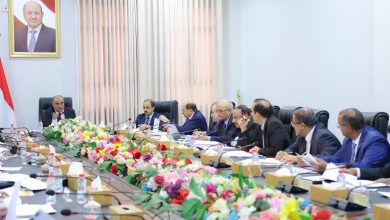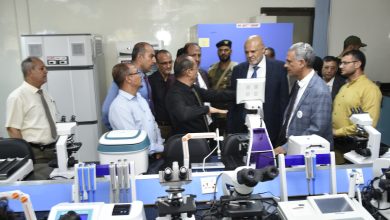The Minister of Information stated that oil derivative trade is a key source of funding for the Houthi militia, impoverishing Yemenis.

Minister Highlights Oil Trade as Key Funding Source for Houthi Militias
In a recent statement, Yemen’s Minister of Information, Culture, and Tourism, Muammar Al-Eryani, emphasized the critical role that oil derivatives trade plays in financing the Houthi militia. He described this trade as a lifeline for the group, enriching its leaders at the expense of the Yemeni people’s livelihoods.
Annual Revenue from Oil and Gas
Al-Eryani revealed that the Houthi militia generates between $2.5 billion and $3 billion annually from importing and selling oil and gas. This revenue comes from customs duties and taxes, as well as free shipments from Iran. The militia does not allocate these funds to the state treasury, employee salaries, or public services.
Control Over Oil Imports
Since seizing control of the port of Hodeidah, the Houthis have monopolized oil imports, imposing customs and tax fees of up to $120 per ton. This strategy has allowed them to collect approximately 200 billion Yemeni riyals (around $374 million) from imported gasoline over just 18 months.
Tax Revenue from Hodeidah Ports
A report from the “REGAIN YEMEN” initiative indicated that the militia earned about $789 million from taxes and fees on imported oil through Hodeidah ports between May 2023 and June 2024.
Free Shipments and Market Manipulation
Al-Eryani noted that the Houthis receive free oil and gas shipments from Iran, accounting for about 50% of their total imports. From April 2022 to August 2023, they smuggled over 2 billion liters of fuel, selling it at inflated prices in the local market. This resulted in revenues exceeding $1.57 billion, which directly benefited the militia.
Price Manipulation and Economic Impact
The Houthis manipulate fuel prices, selling it to citizens at significantly higher rates. While the official price per liter ranges from 300 to 350 riyals, citizens pay around 450 riyals. This price discrepancy has generated estimated profits of 400 billion Yemeni riyals during the same period. For instance, a 20-liter petrol canister costs $18.7 in Houthi-controlled areas, compared to $10.3 in liberated regions.
Black Market Operations
The militia also runs a parallel trade through the black market, creating artificial crises and controlling distribution to impose high prices. This practice has increased transportation costs and the prices of goods and services, further impoverishing the Yemeni population.
Financing War Efforts
Al-Eryani asserted that the Houthi militia relies heavily on oil trade revenues to fund their military efforts, purchase weapons, pay fighters, recruit children, and finance terrorist attacks on maritime navigation. Their monopoly on this trade has led to fuel prices in Houthi-controlled areas rising by over 100% compared to liberated regions. This situation has resulted in factory and farm closures, soaring unemployment, and unprecedented poverty levels, exacerbating the humanitarian crisis in Yemen.
Call for International Action
Al-Eryani urged the international community to take decisive action against the militia’s exploitation of Hodeidah ports and oil trade to finance their war efforts. He called for stricter monitoring of incoming ships, enhanced import oversight, and measures to prevent Iranian smuggling. He advocated for redirecting import operations to government-controlled ports to curb funding for the insurgency and protect the livelihoods of Yemenis.
In conclusion, the situation surrounding the oil trade in Yemen remains dire, with the Houthi militia’s actions posing significant threats to both national stability and the well-being of the Yemeni people.
To follow the news in Arabic





